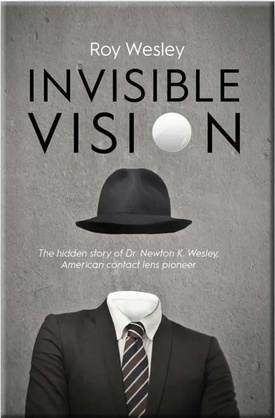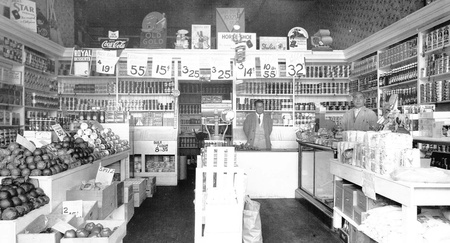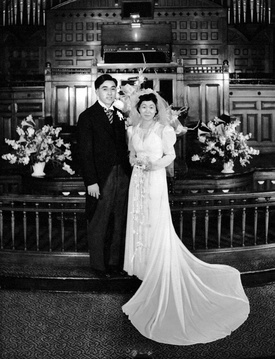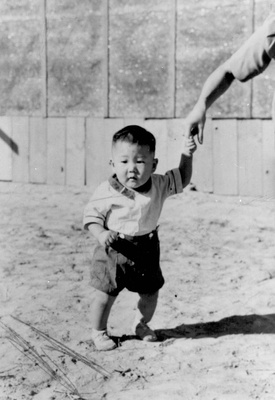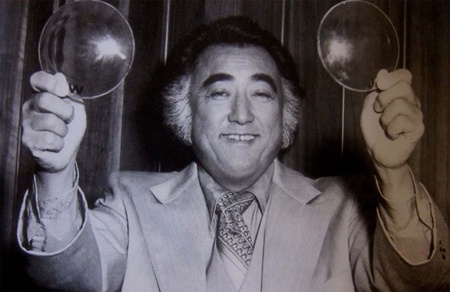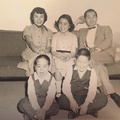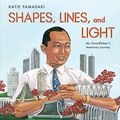In today’s world, it might seem that the study of history, like understanding or listening to our family’s stories, would seem unimportant as we get busier and busier with our day-to-day lives. However, history can play an important role in understanding the world we live in, as it has worked to shape the world we experience now. Also, when we look back at our ancestors’ stories, we can learn that they may have had similar struggles to us or they experienced things that could give us context for how we can go about our modern lives.
Through historical learning, we can learn sympathy, resilience, and much more that can help us in our busy lives and create a brighter world for all to enjoy. Well, the book Invisible Vision by Roy Wesley and my interview with the book’s author, is an interesting example of how historical learning can be important.
Roy Wesley’s Invisible Vision is a biography about his father Dr. Newton K. Wesley, a Japanese American optometrist, and his father’s journey in pioneering contact lenses in America. The biography begins by discussing Dr. Wesley’s life from his humble family beginnings in rural Oregon, then Dr. Weston’s journey to becoming a prominent figure in his community in 1930s/1940s Portland, Oregon. From there, the biography’s story shifts its focus to the monumental life change Dr. Wesley and his family had to experience as America reacted to what happened at Pearl Harbor.
Invisible Vision then moves into its final part on how Dr. Wesley started his work to change the world of contact lenses to be the industry it is today. The catalyst for this work was in part due to Dr. Wesley’s experiences with the war, but more importantly influenced by his own vision struggles that he wanted to solve. As such, this part of Invisible Vision illustrates how hard Dr. Wesley had to work in order to create contact lenses that worked for different vision problems and would be something that people could comfortably use on a regular basis.
While it was a massive undertaking to develop contact lenses, that was only half of the battle Dr. Wesley had to face to help make this new technology accepted by those who would benefit from it the most. Dr. Wesley did this through training optometrists and ophthalmologists in the new technology, and he participated in or created a wide variety of marketing campaigns to get American people to see that these contact lenses can be beneficial for eye care. The author of the biography, Roy Wesley, also excels at weaving in themes of perseverance, hope, and triumph that any reader can enjoy or feel inspired by.
I was fortunate enough to get the chance recently to read a copy of Invisible Vision and then interview the author about the book and his father. Please enjoy what Roy Wesley has to say about creating the book, sharing his family’s story, and other thoughts he has about the book.
* * * * *
Can you comment a bit on Invisible Vision’s evolution from inspiration to the completed work? For instance, how did you do your research and what inspired you to create this book?
My dad died eleven years ago, July 21, 2011. The idea to write about his life started after his death. My idea at first was to pass on his legacy to his family and to my children. As I began researching his background, I realized that this was a much bigger story. Like most kids growing up in a family, I took for granted the daily goings on in life. My dad was a very busy guy and not home very much. I did not get a lot of information from him about his work. That is why it took me 10 years to write the book and to do the research necessary to discover the things that I put down in the book.
As you can imagine, he left behind a lot of paperwork, a collection of contact lenses, optical equipment, books, and so forth. I have placed most of his writings, documents, and primary source material in the Earlham College Library, where it is made public and available online. His collection of contact lenses and memorabilia from the contact lens industry has been donated to the Contact Lens Museum in Portland, Oregon.
Did anything surprise you as you researched and wrote the book?
I don’t think surprise is the correct word for my reaction in researching his life. It was more unexpected feelings about things I never knew concerning him. I wish I knew what I know now when he was still alive so that I could query him further about his life and thoughts. I only recently discovered the places he visited, lived, and worked in here in Chicago. Some of the buildings still exist, and I have lived and walked through those neighborhoods never knowing that my dad experienced the same locations and sights. It’s an odd feeling of being with a ghost who can’t tell me what happened when he was there.
What was your favorite thing to learn or write about?
My favorite things were what I just described above when I would discover an address where my dad lived and then to be able to relate that to my writing. It brought the period and events to life for me. For example, the office of the Austrian ophthalmologist who diagnosed his eye disease was still in existence when I tracked down the address of his office (it has been since demolished and replaced by a large condominium), or the first Chicago school of optometry where he taught. The building and glass window frames of the school still exist just as they did in a picture of him standing in front of the school window with the school’s name.
Are there any particular stereotypes you tried to break through with your book?
I just delivered a talk on freedom and democracy at the Japanese American National Museum three weeks ago in Los Angeles. I related the racial prejudice, political divisions, and loss of Japanese American citizens’ rights to today’s issues. I think we constantly need to be on guard to preserve our freedoms. They are neither free or immutable. Things can change for good or bad. It’s important to steer the country in the direction the Founding Fathers intended.
What was it like to write about your family’s experiences during and after World War II? Were there things you didn’t know about those experiences until you started doing research, because you were so young at the time of these events? For instance, were these experiences talked about much after they happened, or were they not talked about much?
Writing about the WWII period was a learning experience for me. Like most Japanese American families who lived through the incarceration period, they did not speak of it to their children because of the shame they felt of being imprisoned. It was a period best left forgotten and gotten over. I spent a great deal of time researching, reading, and trying to understand what happened so that I could write and speak about it.
How do you think this unprecedented time affected your father’s drive to help people and therefore go down the path of pioneering contact lenses?
It’s pretty clear that my dad never gave up his strong faith in America as a country of his birth and future. Since he was the president of the Japanese American Citizens League in Portland at the age of 21 just before the war, he was committed to American ideals and brought that with him into the camp where he was part of the administration team at the beginning of the incarceration period. He wrote letters to the Governor which he called “Letters to Freedom.”
His work to perfect contact lenses was driven by the need to help his own vision and then later he was on a larger mission to save vision for others. That’s why he created the National Eye Research Foundation.
What was it like to see or hear about your father’s work first hand as a child and as an adult working in your father’s company? How did this help inspire your own career in the field and writing the book?
I worked at the contact lens company from a young age (about 15) and I began wearing contact lenses at the age of 13. I did have direct knowledge of the company and products from an early age, but growing up and becoming a scientist took me away from that. I did return later to help the company out before it was sold to Schering Plough. I chose initially to pursue a career in Cell and Molecular Biology (my PhD and work at Pfizer), but then took an OD degree from the New England College of Optometry and returned to the family business.
What would you like readers to generally take away from your book? Are there specifics you would like readers to take away from your family’s journey and your father’s work?
I hope that it can be an inspiring story for those facing adversities in life and seeing that they can overcome them, succeed, and make major contributions to others during their lifetime. He is an excellent model for those concepts.
What do you think your father’s thoughts would be about the book? Do you think your father would find the book interesting, and what do you think he would want readers to take away from the book?
I would guess that he would have a lot of corrections to make in my writing, since I had to piece much of my work together based on written records, written articles, and interviews. There is nothing like being able to interview your subject in person!
Have you noticed any interesting patterns in how different people have reacted to your book? Also, what are some of the most interesting or unexpected comments you have gotten about the book from readers?
I am always interested and surprised by reactions of people who wear contact lenses but have no idea of the background or history of the devices that give them vision. I’m glad to see that it awakens an understanding that wasn’t there before.
*Author’s note: I would like to thank Roy Wesley for taking the time out of his busy schedule to work with me to conduct this interview. Additionally, I would like to thank Bee Tree Books and Pacific University Libraries for sending me a copy of the book to read and then develop my interview questions for the author. The book is currently available for purchase here.
* * * * *
Author Discussion—Invisible Vision with Roy Wesley
On July 16, 2022, Roy Wesley joined the Japanese American National Museum for a conversation around Invisible Vision, which tells the story of his father, Dr. Newton K. Wesley, who was an American contact lens pioneer. He discussed Dr. Newton K. Wesley’s impact on Roy’s own life as well as the field of optometry.
© 2022 Taylor Wilson


